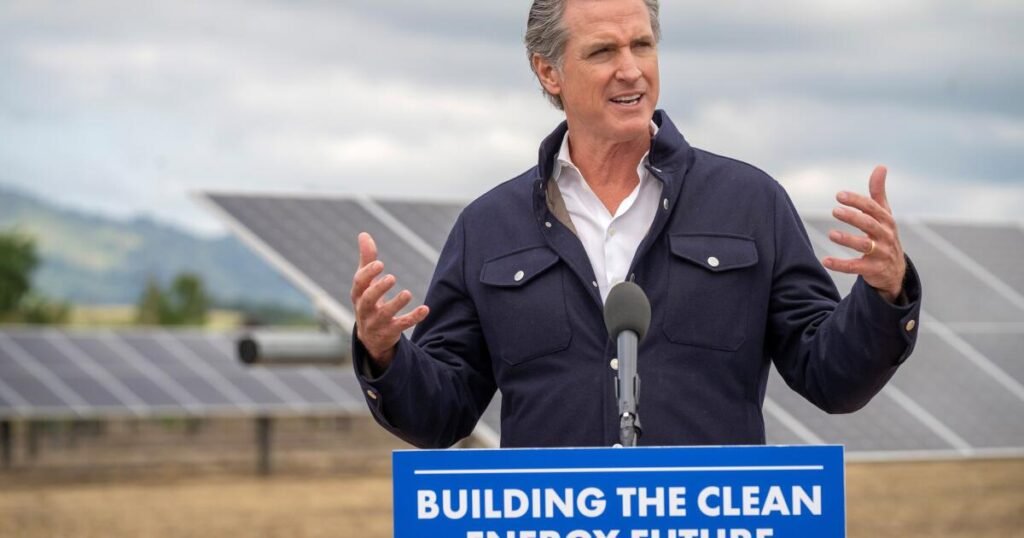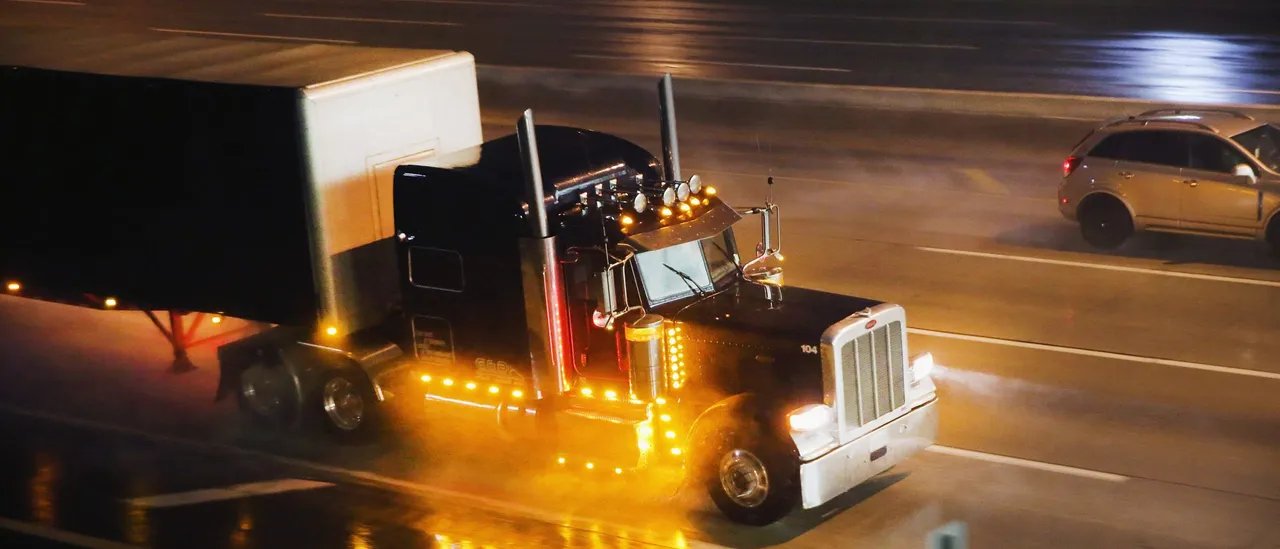The California Supreme Court has presented state officials with a significant opportunity to rejuvenate the rooftop solar initiative, which could help numerous households and businesses reduce electricity costs and address the climate crisis.
Regrettably, it seems unlikely that Governor Gavin Newsom will take action.
Following the California Public Utilities Commission’s decision in 2022 to cut back on incentives for rooftop solar, environmentalists initiated a lawsuit against the agency. They celebrated a significant win earlier this month when the state’s Supreme Court ruled that lower courts were mistaken in rejecting the environmentalists’ challenge to the agency’s reasoning behind decreasing payments to solar customers. The lower courts are now required to reassess the situation.
This moment is quite fitting for Newsom to distance himself from the lawsuit and request that legislators draft a bold strategy to promote rooftop solar. He previously scored a significant win for climate initiatives while countering President Trump’s stance on clean energy. Moreover, this could enhance his climate credentials ahead of a potential presidential campaign of his own.
However, Newsom has expressed that rooftop solar is not among his priorities, particularly since it was his appointee who decided to eliminate the incentives.
If this were Newsom’s sole misstep in climate policy, it might be one thing.
Yet, critics assert that he is increasingly steering California away from long-standing climate aspirations. Consequently, there are concerns that the state might regress at a time when global leadership is crucial.
“I find this very disappointing,” commented Alex Nagy, a program director at Sunstone Strategies, a PR firm collaborating with environmentalists.
As another example, in the final weeks of the legislative session, Newsom has pressured lawmakers to facilitate oil drilling in Kern County and other locations, representing a stark deviation from his previous environmental commitments amid reduced environmental regulations.
Oil companies argue that increased drilling is necessary for ensuring a stable gas supply and pricing, especially with plans to shut down two refineries next year. Some climate advocates are, perhaps reluctantly, in agreement.
Even supporters of drilling are requesting more concessions from Newsom than he might be willing to give. Critics strongly feel that additional oil production won’t effectively address gas prices.
“Big oil is the wealthiest and most influential sector globally. They’ve always been the largest bullies in California,” said Kassie Siegel, director of the Climate Law Institute for Biodiversity, commenting on the substantial lobbying effort on behalf of the fossil fuel industry.
Despite the industry’s grip on California politics, it’s troubling to see a bill—aimed at holding climate polluters accountable for emissions damage—get blocked. Laws meant to assist victims of extreme weather disasters faced similar opposition, with Newsom notably silent in both situations.
Moreover, he seems to have dropped commitments concerning the quick closure of the Aliso Canyon Natural Gas Reservoir following a significant leak that released considerable amounts of methane into the atmosphere. While Southern California Gas maintains that fuel storage is essential for heating and cooking, transitioning from gas to electric appliances could ease the path to closing Aliso Canyon. Yet, Newsom signed a bill delaying updates to building codes promoting electrification, contrasting with New York, which has recently banned gas appliances in most new constructions.
When it comes to issues like plastic recycling, many critics accuse Newsom of stalling the implementation of purposeful single-use plastic recycling laws that were enacted years ago, especially as the plastics and fossil fuel industry push back.
As environmentalists grow increasingly vocal, the governor has yet to acknowledge his faults. In a response to commentary on the situation, Newsom’s spokesperson defended California’s climate efforts, stating that the state is unparalleled in tackling the climate crisis.
“The other narrative attempts to make Trump appear as a genuine mediator,” he added in an email.
Whether or not one agrees with that assessment, it’s clear we’re making strides. Approximately two-thirds of electricity is now climate-friendly, and electric vehicles comprise a notable segment of auto sales, despite the challenging climate for brands like Tesla.
Admittedly, Newsom has benefited from prior market trends and legislation that was in place before he took office. Still, he’s committed to the state’s long-term objectives, including pledging to regulate gas-powered vehicles by 2035 and taking legal action against the oil sector for past climate denial.
However, the climate crisis is undeniably an all-encompassing issue. As Newsom states, if California aims to lead on a global stage, it can’t neglect rooftop solar while simultaneously facilitating the fossil fuel industry and filing losing lawsuits to dodge short-term political repercussions.
The rooftop solar debate is intricate. Some utility and consumer advocates argue that the previous incentive program, known as Net Metering, has burdened non-solar households with higher utility bills. True or not, the governor has not shown much enthusiasm in reviving the declining solar market. Critics suggest he might be succumbing to pressures from investor-owned utilities resisting residential solar initiatives.
Maybe, just maybe, the recent Supreme Court ruling will prompt a resurgence of net metering.
“We have hope. Our understanding of the law backs us,” said Roger Lynn, a senior attorney with the Center for Biodiversity, one of the organizations that brought the lawsuit against the Utilities Commission. (For context: My stepfather, a lawyer specializing in energy law, was part of the legal team representing one of the other plaintiffs.)
Personally, I’m a bit hesitant to revert to net metering, concerned that it might further inflate my electricity expenses. We really do need more solar rooftop installations sooner rather than later.
Similar worries plague gasoline prices. That presents a conundrum for governors caught between pursuing increased oil drilling and appeasing environmentally conscious lawmakers like State Senator Henry Stern from Los Angeles.
When I caught up with Stern, he expressed his inability to back more fossil fuel extraction. Yet, the closure of the LA County oil refinery by Phillips 66, along with news from Valero regarding another refinery, alarmed him. He believes legislators might have to compromise to avoid losing support for clean energy while contending with rising gas prices, which could deter other states from following California’s lead.
“None of these options feel satisfactory,” Stern conceded.
While he continues to view California as a climate leader, he acknowledges the energy transition can be fraught with challenges.
“I’m not sure how best to describe it—whether it’s a backslide, a tough compromise, or just unappealing pragmatism,” he reflected.
The road ahead is often rocky. In a state grappling with increasingly severe heatwaves, wildfires, and flooding, that doesn’t excuse backsliding. State officials may have to make tough decisions, but we can look to them not to choose short-term political gains at the expense of climate progress.
Let’s hope future leaders take this lesson to heart.







